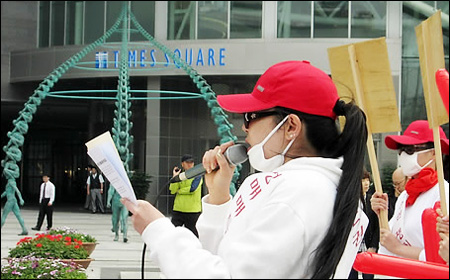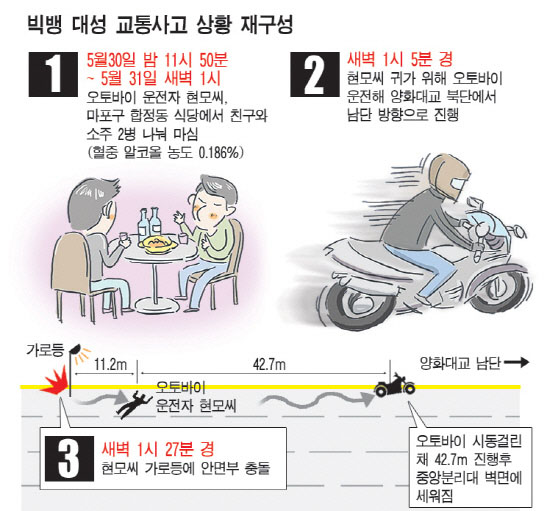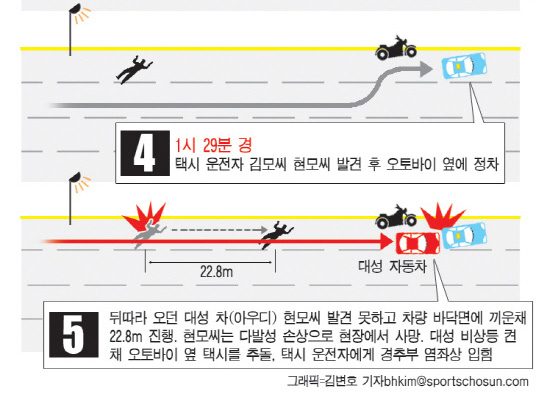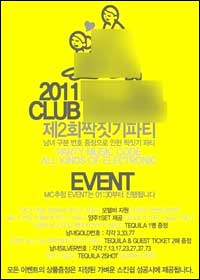On Sunday, May 15th, dozens of prostitutes wearing white surgical masks and red caps held a three-hour protest in front of Times Square, a shopping mall in front of Yeongdeungpo, Seoul.

The opening of Times Square forced the closing of 30 brothels, so that only about 50 remain. The prostitutes criticized the looming possible closure of the remaining brothels.
“What can we do if the government drives us out of our job? This job is the last option for us, and there is no alternative,” 29-year-old Kim Eun-jung (alias) working in a brothel in Yeongdeungpo told The Korea Times.
“It’s a matter of survival for us.”
They also claimed that crackdowns only force the business underground, whereby exploitation becomes a more serious problem, and criticized efforts at rehabilitation by the government as half-hearted and inadequate.
Last Wednesday [May 11th], they also held a press conference at the Korea Press Center in central Seoul, asking for the abolishment or revision of the 2004 Act on the Prevention of the Sex Trade and Protection of its Victims, which reinforced penalties for prostitution.
[ … snip … ]
Prostitutes argue that the law fails to reflect the reality and will only worsen the situation.
“The special law fails to reflect the reality. It can’t root out prostitution, but rather pushes the sex trade further underground,” Kim said.
“As such, sex workers can be exploited. A lot of Korean prostitutes choose to go abroad to work, where their human rights can be easily violated and they have to work without proper protection.”
[ … snip … ]
She also criticized the government’s efforts to help sex workers change their jobs.
“We also want to change our jobs. But the subsidy of 400,000 won a month and the rehabilitation programs proposed by the Ministry of Gender Equality and Family are too unrealistic to reflect our situation,” Kim said.
They also acknowledged that the present red-light districts are unsightly and that it’s understandable to want to remove them, but that their business should be regulated, not outlawed.
Sex workers believe proper regulation is necessary instead of “meaningless” efforts to outlaw prostitution.
“We also know the big brothel districts in Seoul are an eyesore, which need to be removed, but we also need to survive,” said Kang Hyun-jin, director of the Hanteoh Women Workers Federation (HWWF), a nationwide group of prostitutes.
“The special law can’t root out prostitution, which I personally think is impossible,” Kang said, citing a survey result.
[ … snip … ]
“Our demand is that the special law should be amended to reflect the reality and the government should properly regulate prostitution so that it can take place in designated areas, which aren’t necessarily central areas of the city, and we think it can minimize the negative aspects of prostitution,” Kang said.
On Tuesday afternoon, another protest was held, and this time the demonstrators (numbering about 450 this time) wore white funeral clothes, garish red paint, or makeup that made them look like Heath Ledger’s version of the Joker.
Yeongdeungpo isn’t the only district experiencing persecution.
Pimps in Cheongnyangni in the northeastern part of Seoul have clashed with police as they try to pick up customers in front of a major department store nearby.
Those pimps aren’t guys dressed in purple jackets and feathered hats. They’re ajummas, and as you know, you don’t get between an ajumma and her livelihood if you want your nads intact.
As I’ve written about before, the reason for these closures isn’t “moral outrage,” but the fact that these areas now sit on very valuable land.
A decade ago, the price of real estate for 3.3 sq. m of land around the red light district in Yongsan was W30-50 million (US$1=W1,090). Now, it has soared to more than W150 million. A 54-story skyscraper and a sprawling apartment complex are scheduled to be built in the red light district area in Cheongnyangni, while 35 and 40-story buildings will be built in Yongsan.
[ … snip … ]
The red light district in front of Yongsan Station near central Seoul used to house around 120 brothels, but only six or seven remain and even they will be shut down next month.
Cheongnyangni is also sitting on valuable land, which is right next to large shopping malls and an E-Mart (Korea’s version of Wall-Mart).
I think the determination being shown in these protests might have to do with the way that Yongsan was closed down with nary a whimper. I guess the sex workers figure that they had better draw a line in the sand, or else Yeongdeungpo will be next, followed by Cheongnyangni.
These red-light districts have been around since at least the early 1970s. The following is from page 137 of Michael Breen’s The Koreans:
“It was during the first ever North-South talks in Seoul in the early 1970s.
[ … snip … ]
Obviously the cars carrying the North Korean officials did not swing through the red-light areas, nor the poor districts, nor past the huge American military base near the center of the city.”
I think that they were amongst the first areas built up during the post-war reconstruction. The buildings are old-style (e.g. arched tiles on the roofs). They are/were located near major train stations, which would have been the most important transportation infrastructure after the Korean War. Cheongnyangni and Yongsan are major train stations. There was a brothel area near Seoul station. Other cities like Daejeon have brothel districts near their train stations.
Here is a quote from Kang Hyun-jin that I found interesting.
“In the past, officials from ward offices used to visit us to teach us English so that we could serve U.S. soldiers when there were big military drills taking place. They boosted the business to earn dollars, and now they try to abolish it all of sudden because they believe we are a rich country.”
I think that Park Chung-hee once referred to such sex workers as “patriots” because of the way they earned American dollars for Korea. I think I read that in Micheal Breen’s writings, but I can’t find it.
Interestingly, the first article that I linked to was written by Kim Tae-jong, who wrote a previous article that I discussed before.



